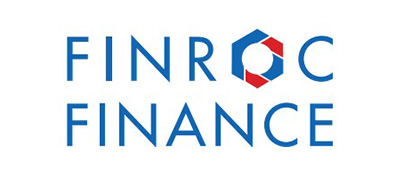The ABC of Borrowing: A Smarter Way to Get Loan-Ready
When it comes to applying for a loan – whether it’s for your dream home, a smart investment, or to grow your business – knowing how lenders assess your application can give you a real advantage. Here is a simple structure that will help you better understand what lenders are looking for in a borrower.
The ABC of Borrowing – the three key pillars that help you prepare for loan success and take control of your financial future.
A is for Accountability
Let’s be honest lenders want to know they can trust you to repay what you borrow.
Accountability is all about how you’ve handled money in the past. Have you been consistent with repayments? Do you live within your means? Do your bank accounts reflect stable, responsible financial behaviour? These are the signs lenders look for and they’re also key indicators of your financial wellbeing.
What strong accountability looks like:
- On-time repayments for loans, credit cards and utilities
- No missed payments or overdrawn accounts
- Clean bank statements with regular savings behaviour
- Stable employment and a consistent address history
💡 FinRoc Tip: Lenders can view as little as three months of bank statements so if you’re planning to apply for a loan soon, now’s the time to tighten up your financial habits.
B is for Borrowing Power
Borrowing Power is a simple concept – it’s how much you can borrow based on your income and expenses. But calculating it isn’t always so straightforward.
Every lender has their own way of assessing your ability to repay the loan. Some will count bonus income. Others won’t. Some allow for higher living costs. Others have stricter rules. That’s why working with a broker who understands the landscape is so important.
What affects your borrowing power:
- Your gross income from all sources
- Existing financial commitments (loans, credit cards, HECS)
- General living expenses and number of dependants
- Interest rates and the lender’s buffer
- Type of income (full-time, casual, self-employed, rental, etc.)
💡 FinRoc Tip: Before you make big decisions, talk to us about your borrowing capacity across multiple lenders. You might be surprised at how much it varies and how we can improve it. And don’t forget lenders add a 3% buffer to stress test you ability to pay the loan.
C is for Coverage
Every loan needs something solid to back it and that’s where coverage comes in.
Coverage is about the security offered to the lender. In other words, collateral. In most cases, that’s the property you’re buying, refinancing or investing in. But it also refers to how the loan is structured including how much deposit you’re contributing and the risk profile of the asset itself.
What makes for strong coverage:
- A good deposit (10–20% is ideal, but we work with 5% too)
- A property in a strong, marketable location
- A suitable loan-to-value ratio (LVR)
- A clear loan purpose and stable equity position
💡 FinRoc Tip: Some properties (like off-the-plan apartments or very small units) can raise red flags for lenders. We’ll help you avoid the pitfalls and select a lender who supports your property goals.
Why ABC Matters
The lending world is full of small print and shifting rules but with the right guide, it doesn’t have to be overwhelming.
At FinRoc Finance, we go beyond “can I get a loan?” and help you ask better questions:
- How can I improve my loan position?
- Which lender is right for me, not just now but long term?
- What’s the smartest way to structure this for financial freedom?
Whether you’re just starting out, refinancing for a better deal, or planning your next big move, we’re here to walk beside you with insights, clarity and confidence at every step.

